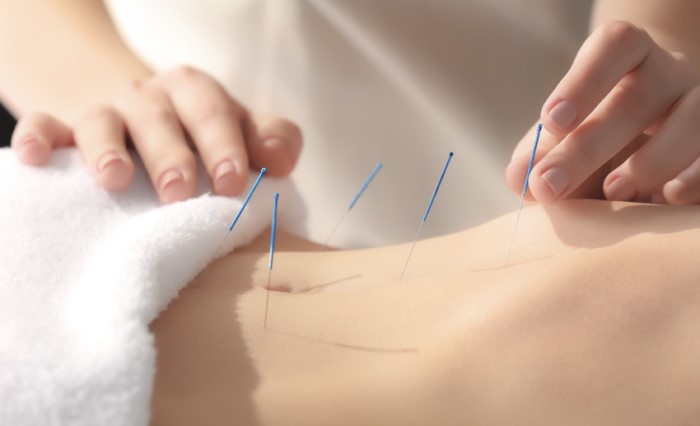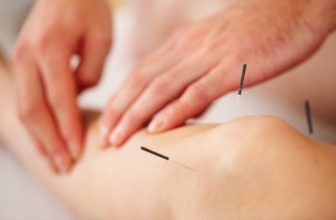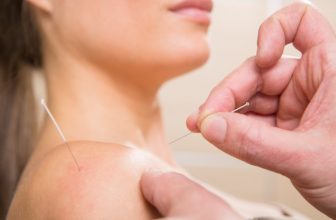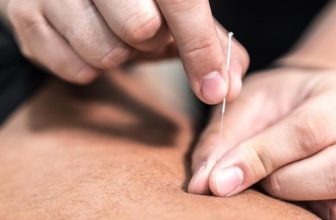
Acupuncture has been used for centuries for a variety of ailments and has been found to be effective in a variety of conditions. The treatment is gentle and effective for a range of different problems, from pain to nausea and vomiting. Compared to conventional hollow-bore needles, acupuncture needles are thinner and less painful than their conventional counterparts. Acupuncture is contraindicated by most practitioners, but not all of them. Some people are contraindicated by anticoagulation. Patients with active infection, cutaneous malignancy, or severe neutropenia should avoid acupuncture.
Types of Conditions Can Be Treated With Acupuncture
- Labor pain
- Dental pain
- Lower back pain
- Headaches, including tension headaches and migraines
- Neck pain
- Tennis elbow
- Fibromyalgia
- Osteoarthritis
- Menstrual cramps
- Respiratory disorders, such as allergic rhinitis
- Chemotherapy-induced and postoperative nausea and vomiting
Symptoms
Acupuncture can be effective for many medical conditions, including PMS and painful periods. Women who are pregnant can also benefit from this treatment because acupuncture helps to ease pain and improve the quality of their menstrual cycle. Menopause is another condition that can be treated using acupuncture, as well as arthritic conditions and fertility issues. There are many other conditions for which acupuncture is effective.
While acupuncture is generally safe, people should discuss any concerns they may have with their primary care physician before starting a treatment. While most practitioners use single-use needles to minimize the risk of infection, some people may experience soreness after acupuncture. People taking blood thinners and bleeding disorders are also at risk for bruising. However, if you have an established medical condition or if you have a history of bleeding, you should consult with your doctor before beginning acupuncture.
Complications
Although the incidence of acupuncture-associated injuries is low, the risk of AEs is still present. The majority of these cases are related to poor hygiene and unsanitary conditions in clinics. Some cases are so severe that they require hospitalization. Nevertheless, complications such as disunion can occur. Disunion and other injuries are associated with acupuncture treatment and can be prevented with the use of disposable needles and popularizing health knowledge.
The most serious complication of acupuncture treatment is pneumothorax, which is caused by a punctured lung. A few cases of pneumothorax are documented, but no autopsy reports have been performed. However, in other cases, such as a patient with bronchial asthma, the risks of acupuncture treatment can be minimized by following proper anatomical training and techniques.
Treatment
Acupuncture is a highly effective treatment for a number of ailments. In the East, it has been used to treat virtually every disease and condition known to man. However, in western medicine, acupuncture is increasingly recognized as a valuable treatment option for a wide variety of illnesses. Listed below are some of the conditions that are most commonly treated with acupuncture:
Although acupuncture is relatively safe when performed by a trained specialist, it should be understood that acupuncture may have some side effects. Side effects are similar to those associated with injection therapies and include fatigue, mild pain, infection, bleeding, and nerve damage. The risk of infection is highest in older people, but acupuncture is generally safe for these patients. Some people may experience lightheadedness and bruising when receiving acupuncture, including those who are afraid of needles or who have a history of heart or circulatory conditions.
The musculoskeletal system is the collection of muscles, bones, and joints in the body. Any disease or injury to this part of the body can lead to pain. Common examples of rheumatic diseases are arthritis and rheumatism. Acupuncture can treat these ailments, and may even help in other situations, such as in the case of postoperative dental pain. For more information on acupuncture, please visit our acupuncture resource section.
Cost
The cost of acupuncture varies, depending on where you go for treatment. Acupuncture practitioners in major cities tend to charge more than those in small towns and rural areas. Prices vary depending on location and the length of time spent on the table. Some clinics have reduced-cost options and others offer discounts for multiple treatments. Check with your insurance company before scheduling a treatment. If the provider you choose does not accept your insurance, they may be willing to negotiate a discounted rate for your treatment.
The cost of acupuncture sessions varies widely, from $75 to $100 for a basic session. Prices can be even higher if other treatments are used. Moxibustion is one such treatment, which involves burning herbs and applying heat to certain areas of the body. The price of moxibustion treatment can range from $35 to $75 per session. The cost of acupuncture can also include cupping, a treatment that helps increase fertility.




